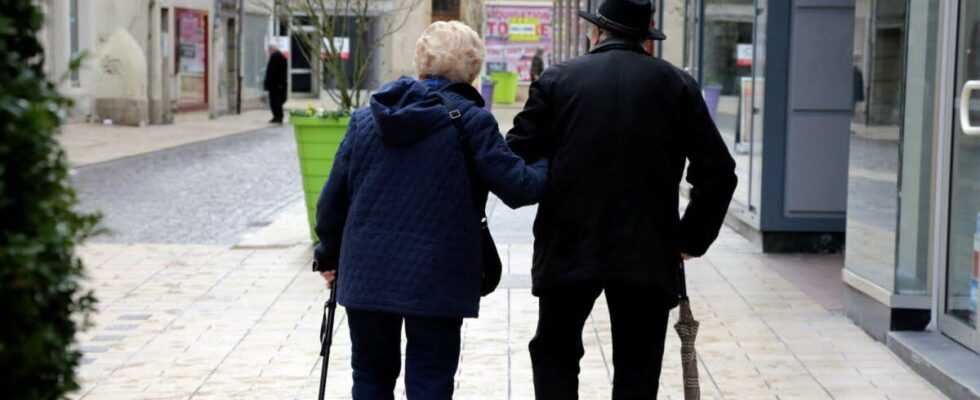Government spokesman Gabriel Attal confirmed this Thursday morning: Emmanuel Macron wishes, if he is re-elected, to gradually postpone the minimum retirement age to 65, compared to 62 today.
Several opponents of the President of the Republic and candidate for the presidential election have expressed their strong opposition to the proposal of the Head of State, particularly with regard to the life expectancy of the French and the inequalities that this could cause.
Here are some figures to understand this debate.
The French live about 65 years in good health
“Because we live longer, we will have to work longer,” Emmanuel Macron said last July.
Admittedly, in 2020, the life expectancy of French women was 85.1 years, compared to 83.8 years in 2005. That of men was 79.1 years, compared to 76.7 years 15 years earlier.
But the President of the Republic’s rhetoric is still criticized by some opponents of the extension of the retirement age because of life expectancy in good health, which INSEE defines as “the number years that a person can expect to live without suffering from incapacity in the gestures of daily life, taking into account the sanitary conditions of the moment”.
In 2020, according to INSEE data, life expectancy in good health was, on average, 65.9 years among women, slightly higher than the retirement age for which Emmanuel Macron pleads. . On the other hand, among men, life expectancy in good health is 64.4 years, and therefore less than 65 years.
At 62, 25% of the poorest men are dead
Several presidential candidates, such as Anne Hidalgo and Fabien Roussel, have denounced the fact that the extension of the legal retirement age would widen the inequalities between the richest and poorest French people. For good reason: the less well-off actually live less long, and therefore benefit less from their retirement than the rich. Or don’t benefit from it at all.
According to INSEE data from 2018 (the latest available to date on the issue), the life expectancy of the poorest 5% of French people (less than 466 euros per month on average) was 80 years old. among women and 71.7 years among men between 2012 and 2016. Over the same period, that of the richest 5% (more than 5,796 euros per month) is 88.3 years among women and 84.4 years among men – 13 years older than the poorest 5% of men.
Moreover, the less well-off French people die much more often than the richest before reaching retirement age. Thus, between 2012 and 2016, 25% of the poorest 5% of men had already died at the age of 62 compared to only 5% of the richest 5%. Among women, 13% of the poorest die before reaching the age of 62 and the legal retirement age, compared to just over 3% of the richest.
Especially since all professions are not housed in the same boat because of their arduous nature. According to 2016 figures from the Observatory of Inequalities, at age 35, a male senior executive has a life expectancy of 49 years, compared to 43 years for a worker. That’s six years apart.
Half of seniors experience a period of unemployment before retirement
Other opponents of the extension of the legal retirement age point to the unemployment and inactivity rate of seniors who are not yet retired, a problem that could potentially worsen with the decline of the legal retirement age.
According to a study dated 2021 by DREES, the statistical service of the Ministry of Health, on average, 46% of retirees reach retirement age having experienced at least one year without working between the ages of 50 and 67. “Women (51%) are more often exposed to this type of situation than men (41%)”, underlines the study. This still means that 54% of seniors reach retirement without being unemployed during the preceding years.
In 2018, statisticians from the statistics department of the Ministry of Labor (Dares) also highlighted the issue of employment for seniors. Between 2016 and 2018, “if the unemployment rate of seniors appears relatively low (7.5% among 60-64 year olds), it is because it masks a high rate of inactivity: between 59 and 61 years old more ‘One in five seniors is inactive but not yet retired, often discouraged after a long and unsuccessful job search or for health reasons,’ they note in their report.
The inactivity of seniors is also more marked in France than among its neighbours. In 2019, 53% of 55-64 year olds had a job. This is less than the EU average (60%) and much less than certain countries such as Sweden or Japan, where the employment rate for seniors exceeds 70%.
